This article explores the significance of obelisks, tracing their evolution from ancient Egypt to global monuments. It highlights their architectural marvel, symbolic importance in honoring deities like the Sun God Amun, and the mystery of their construction and transportation. The piece also notes the obelisks' spread across cultures, underlining their enduring legacy as symbols of ancient ingenuity and spiritual depth in just 70 words.
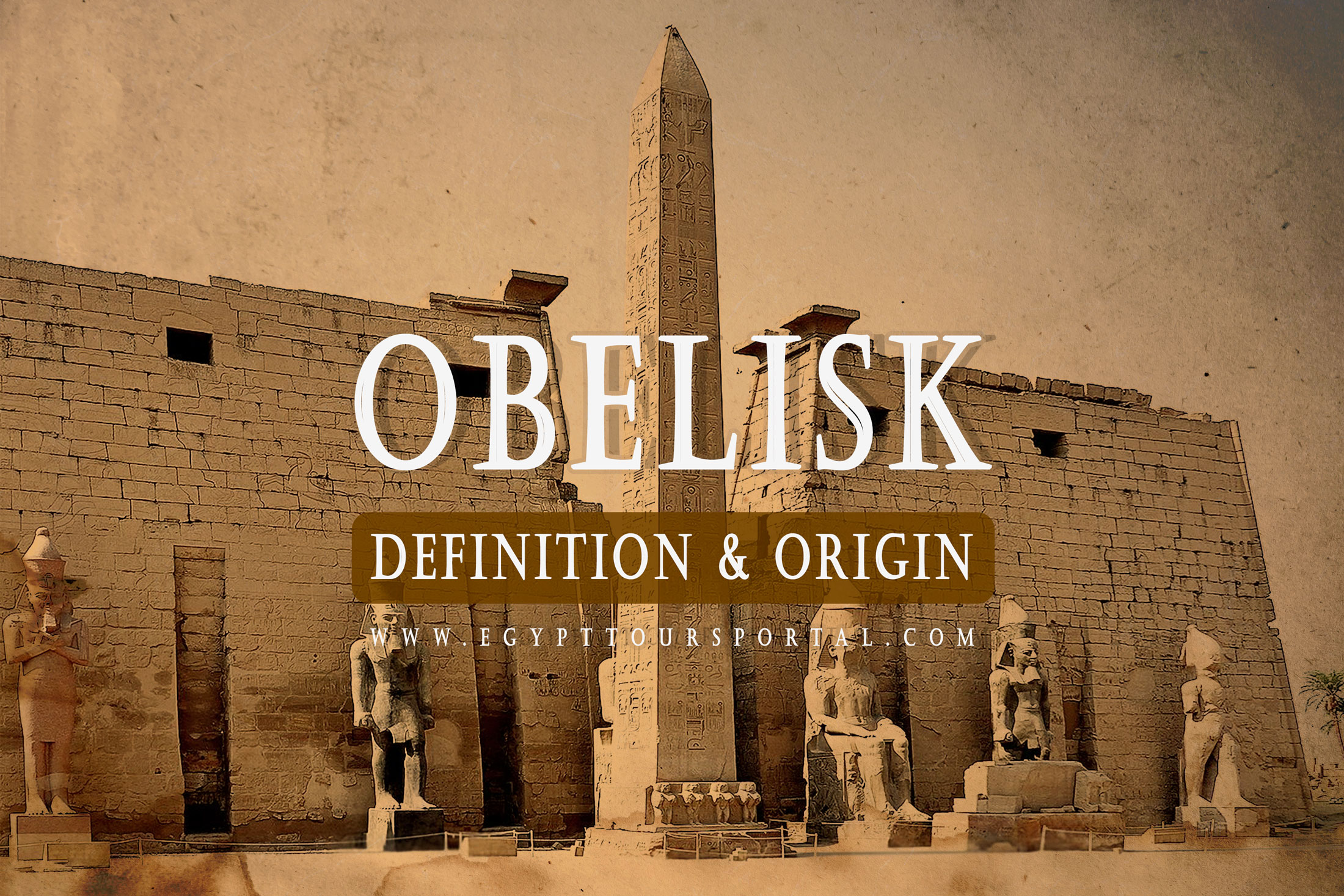
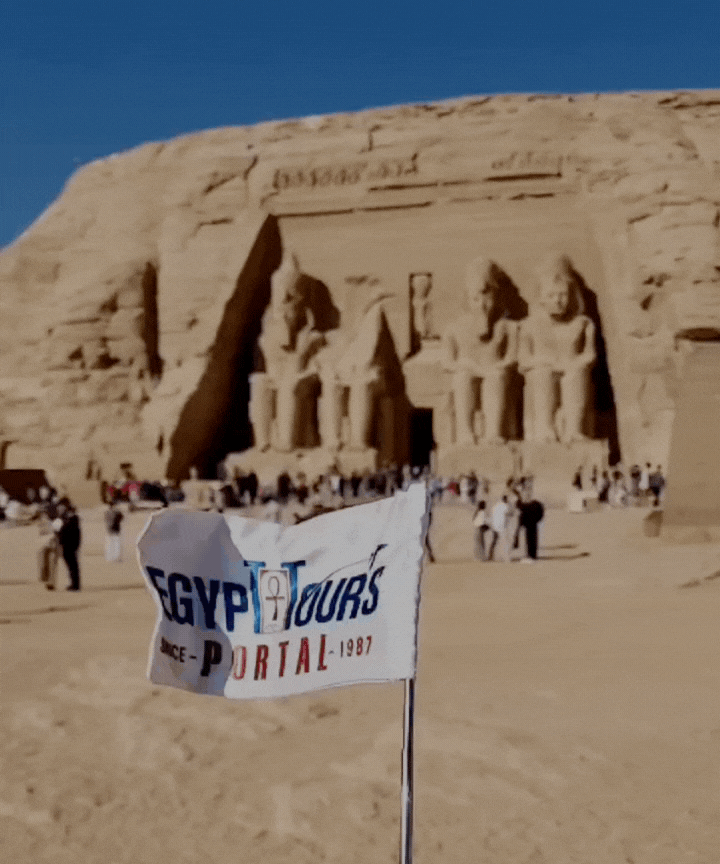
The obelisk is one of the most incredible and recognized archaeological monuments on the face of the earth and in all of history. This object was able to serve as a reminder of the forgotten hiding glory of the ancient Egyptian civilization. An obelisk is simply a stone rectangular pillar with a tapered top forming a pyramid to commemorate an individual, an event, or honor the ancient gods.
The obelisk holds powerful and meaningful mythical tales and facts that shed light on the beliefs of the ancient Egyptians, who had deep concepts when it came to creation, as can be seen on the obelisk, which looks like the BEN-BEN. The obelisks are considered to be ambassadors of Egypt as they can be seen all over the world carrying inscriptions conveying very interesting information.
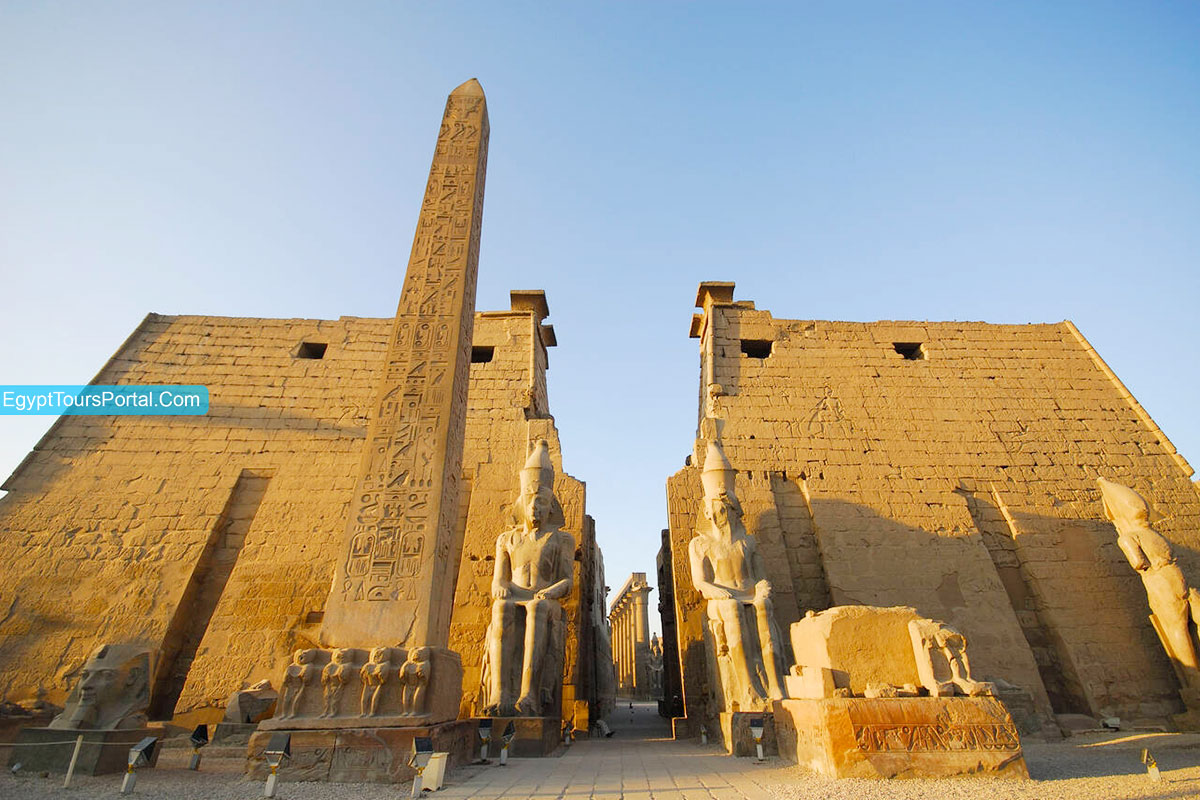
The obelisk came to being during the Early Dynastic Period (3150- 2613 BCE) after the construction of the mud brick mastaba tombs of the Step Pyramid of Djoser in 2670 BC; it was carved out of a single piece of red granite from the quarries at Aswan. These early obelisks are considered a form of prototype for working with stone, which stopped in order to develop the necessary steps to create an ideal pyramid building. It was designed to be wider at its rectangular base than its pyramidal top and was often covered with an alloy of electrum; the obelisks were all engraved with hieroglyphs, which included religious dedications to ancient Egyptian gods, especially the Sun God Amu and commemorations of various rulers of ancient Egypt.
It was mentioned by the Greeks as resembling long cooking skewers in order to reach the sky. Many cultures from all over the world have adopted the obelisk, but only Egypt has used monolithic red granite to build these epic wonders. The creation of the obelisks during the times of ancient Egypt was carved from a single stone block, which was then transported and positioned on top of a base. Also, the raising process remains a mystery.
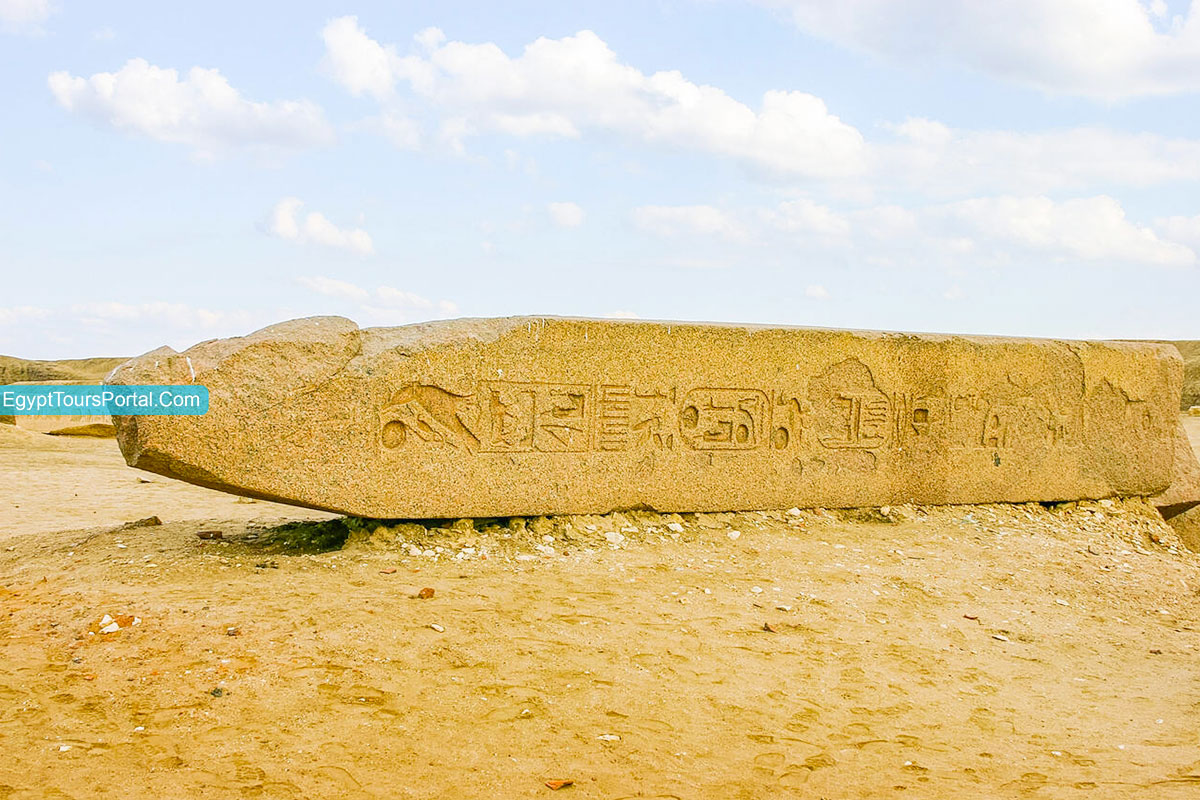
Obelisks were deeply woven into Egyptian cosmology, honoring gods, pharaohs, and the sun's vital journey across the sky. The word Obelisk is of an English nature of Greek origin rather than Egyptian because Herodotus (greek traveler & historian) was one of the first writers to describe the obelisks in his writings. The ancient Egyptians called them Tekhenu which means "To Pierce The Sky". The obelisks held great meaning and were considered a symbol for the Benben, which is a primordial mound where Atum stood at the moment of creation, as mentioned in the ancient Egyptian Myth of creation.
The obelisks came in pairs, which signified balance between the realms of earth and heaven, as well as the concept of megalith. They emphasized the essential unity of existence through the alignment and harmonization of the opposites. It stands in defiance of gravity, which also symbolizes the externalization of the human need for verticality. The hidden symbolism behind the creation of the obelisk is their initial goal to honor the gods and pharaohs, which was believed to embody the spirit of the honored pharaoh and deity. The obelisk is also associated with the Benu Bird, which is a symbol of the morning star and the renewal that resides in the city of Heliopolis, the center of solar worship, plus whose cry would awaken creation and set life in motion. Also, the Bennu bird acted as a precursor to and inspiration for the Greek Phoenix.
The Unfinished Obelisk is located in the northern region of the stone quarries of ancient Egypt in Aswan, it's a tourist attraction in Egypt.
Read MoreThe obelisk was created by the pharaohs in order to immortalize their names across time, which also symbolizes the deity's living presence, the pharaoh's immortality, and the concept of balance. The obelisk acts as a sundial, which tracks the god of the sun and the resurrection of Ra's movement except when the sun is directly overhead. They were designed and positioned to catch the first and last light of day, honoring Ra's journey from night through the dangers of the underworld, symbolizing the cycle of day and night. The obelisk symbolizes the concepts of victory, achievement, and success. The obelisks symbolized the advancement of every person to greatness and put a positive mark on society.

The origin of obelisks was derived from natural astronomical phenomena associated with the sun pillars and zodiacal light. The obelisks were used as training monuments in the old kingdom of ancient Egypt around 2570 BC to harness their skills in order to create the pyramids. Most of the obelisks were built during the new kingdom of Egypt (1550-712 BC) under the hand of Ramesses II in his temple of Amun at Thebes in Upper Egypt and down to Heliopolis in Lower Egypt. The obelisk, which rose from the Greek word for a pointed pillar, stands as a tall, slender monument, often crowned with a pyramidion.
It originated in ancient Egypt over 3,000 years ago; various cultures revered these monolithic structures as a homage to sun-associated deities. It was crafted from a single block of stone erected in pairs at temple entrances during ancient Egyptian times. It was adorned with hieroglyphs honoring gods like Ra, the sun god, and paid tribute to rulers. They held great meaning and even greater symbolism, which connected to important ideas and concepts related to the ancient Egyptians. The extraction of these monuments from quarries was a monumental task, with one 97-foot obelisk taking seven months to cut. While the Egyptians mastered the art of crafting single-block obelisks, other civilizations like the Phoenicians and Canaanites produced similar structures, although not from a single stone.
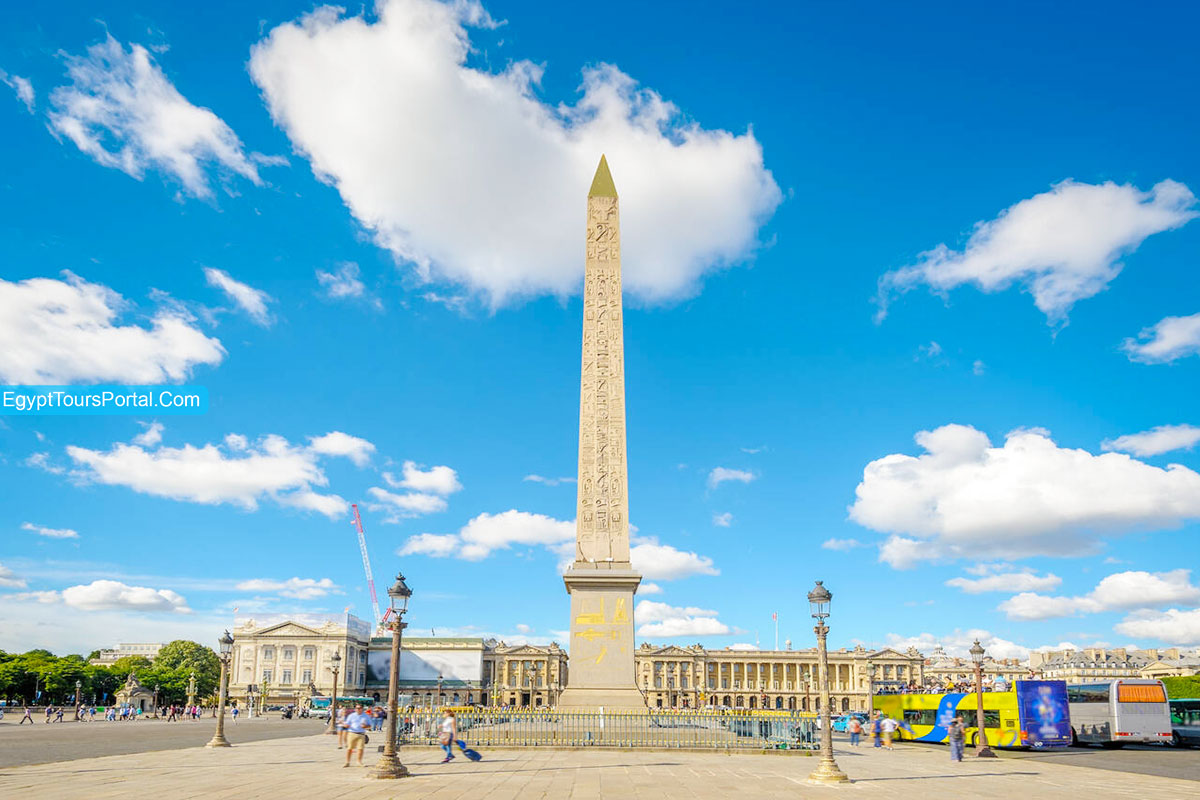
The Obelisks held a great symbolism and purpose behind them as they held an important religious value which represented the ben-ben, which was a primordial mound where Atum stood at the creation of the world many ancient and Greco-Roman Egyptians believed the Bennu or Phoenix bird, which is known its cry has the power to awaken creation and was linked to signifying the daily renewal, morning star plus marked the end world with its great cry which in a way mirrored the cyclical nature of creation. The Bennu bird was linked greatly to the sun god Ra as it symbolized light and life, which is seen in the epic city of Heliopolis, which became the center of solar worship.
The connection between the sun god Ra, the Bennu Bird, and the Obelisk increased heavily in the New Kingdom period when the worship of Ra also increased. The obelisks always came in pairs, which were symbols of true harmony and balance, which is able to shed light on the duality value in the heart of the Egyptian society, which highlighted the complementary nature of opposites, thus conforming to the essential unity of the entire existence. The sole purpose of creating the obelisk was to honor the incredible heritage of many rulers and gods in order to achieve absolute immortality plus even commemorate a number of very important events. Offerings were presented to obelisks, which was similar to the temple rituals. The obelisks reflected a deep connection between ancient Egyptian culture and celestial phenomena.
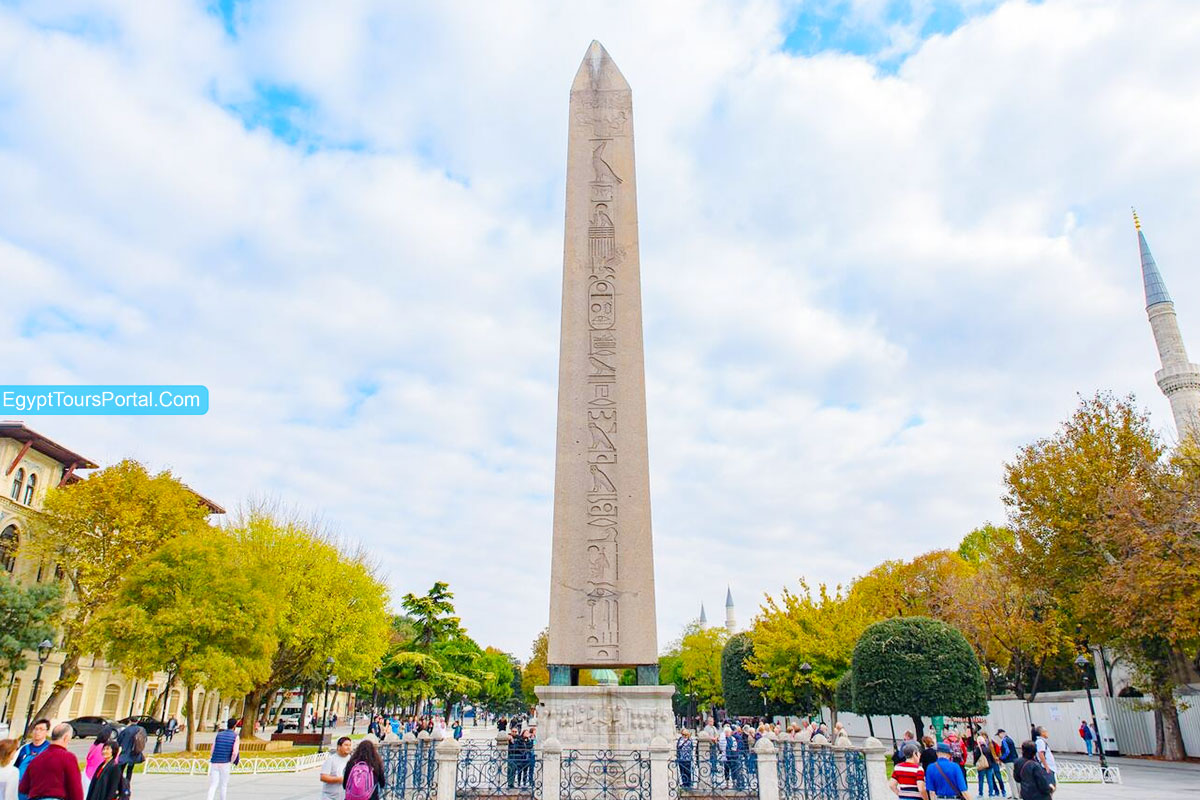
The architecture of the obelisk is an epic monolithic stone pillar that was placed in pairs at the grand entrance of the ancient Egyptian temples. The Obelisks are carved from a single piece of red granite harvested from the Aswan quarried. They are recognized for their incredible shape, which is wider at the base and tapering to a pyramidal top, often covered with an alloy called electrum, made of gold and silver. Both sides of the obelisk shafts are decorated with marvelous hieroglyphs that possess religious dedications for the rulers and the solar gods and creatures. The obelisk was crafted to match the dimensions of the targeted temple plus its intended location.
Investigate the construction, materials, and successes of Ancient Egyptian architecture, including pyramids, temples, and more.
Read MoreThe pyramidion on top of the obelisk had to be designed to catch the last and first rays of the sun, which needed ideal height and positioning. The tools used for crafting the obelisks included using metals like copper and diorite. Many techniques were used to extract the stone from the bedrock, which required wooden wedges. Many facts about the carving and moving of the obelisk are documented and understood, but the method of raising them remains a mystery to this very day. It is worthy to know that the obelisks served as a training ground for developing a number of skills much like the pyramid construction.

The development of the obelisk started as a stone pillar with a highly distinctive tapered top, which formed a marvelous pyramidion that was placed on a great base in order to immortalize and glorify many great gods, events, and rulers. The concept of the obelisks rose from the early dynastic period, where the step pyramid was constructed around 2560 BC.
The development of the obelisk led to the rise of a marvelous skill in working with stone in future monumental projects. The oldest known surviving obelisk date to the reign of Sesostris I which is found in Heliopolis and has a height of 80 ft in height and weighs 143 tons.
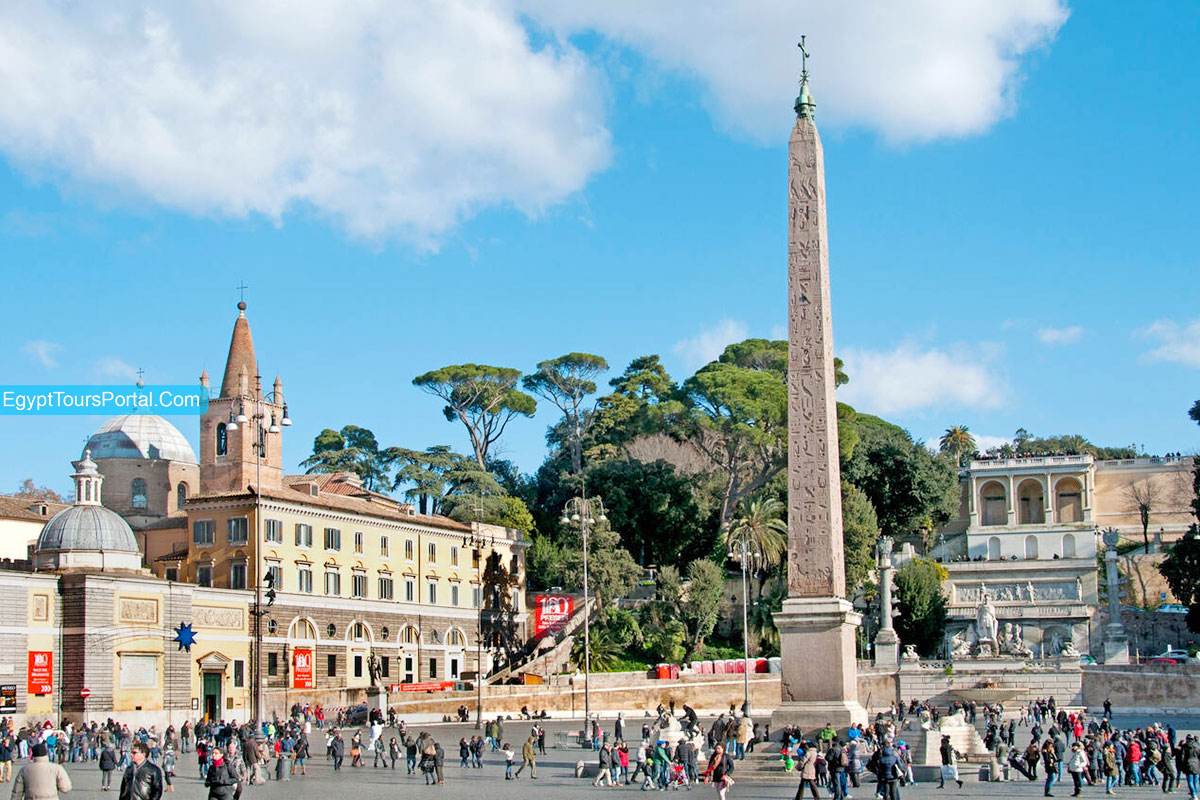
The spread of the obelisk came due to a multifaced symbolism that showcased the eternal immortality and vitality of the pharaoh; plus, it stood as a symbol of duality and balance. They personified the powers of the gods, like the sun god Ra. They were constructed and placed in strategic spots so that they could witness the first and last light of the day. They acted as some form of sundials, which indicated Ra's journey across the boundaries of the sky and the underworld, where he protected the kingdom from the evil serpent Apophis.
The spread of the obelisk continued as a tradition across the next centuries as many rulers like Hatshepsut, Ramesses the Great, Amenhotep III, and more across the shining land of Thebes. Many great foreign cultures, like the Phoenicians and Canaanites, produced obelisks inspired by the Egyptian model. Across the world are a number of obelisks that were transported in the Roman era from Egypt to Italy. Dozens of obelisks were taken to Rome as seen in the Piazza San Giovanni in Laterano that was made by Thutmose III at Karnak Temples Complex. Around the 19th century, a number of obelisks were able to find their way to Britain and the United States.
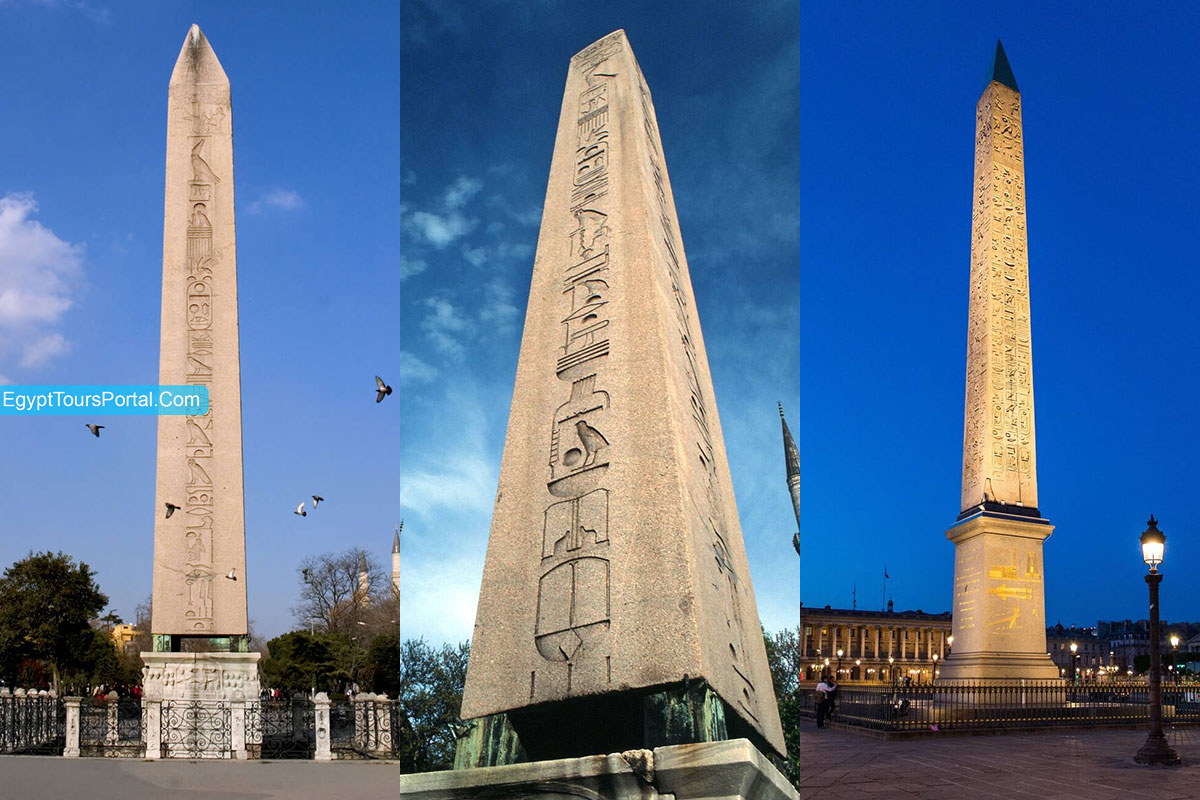
During the Roman Empire, many obelisks were transported from Egypt to places like Rome, where they were prominently displayed. Some of these massive monuments, such as the one in Piazza San Giovanni in Laterano, originally created around 1400 BCE, weigh around 455 tons and remain among the largest surviving ancient obelisks. The ancient Egyptians would usually place them in pairs at the entrance of the temples in keeping with the Egyptian values of balance and harmony. Some obelisks still hold their location, but some were moved from their original position by a foreign nation or given as a gift by the Egyptian government, such as:
Rome has eight ancient Egyptian obelisks, which are:
There are other obelisks within Italy, such as:
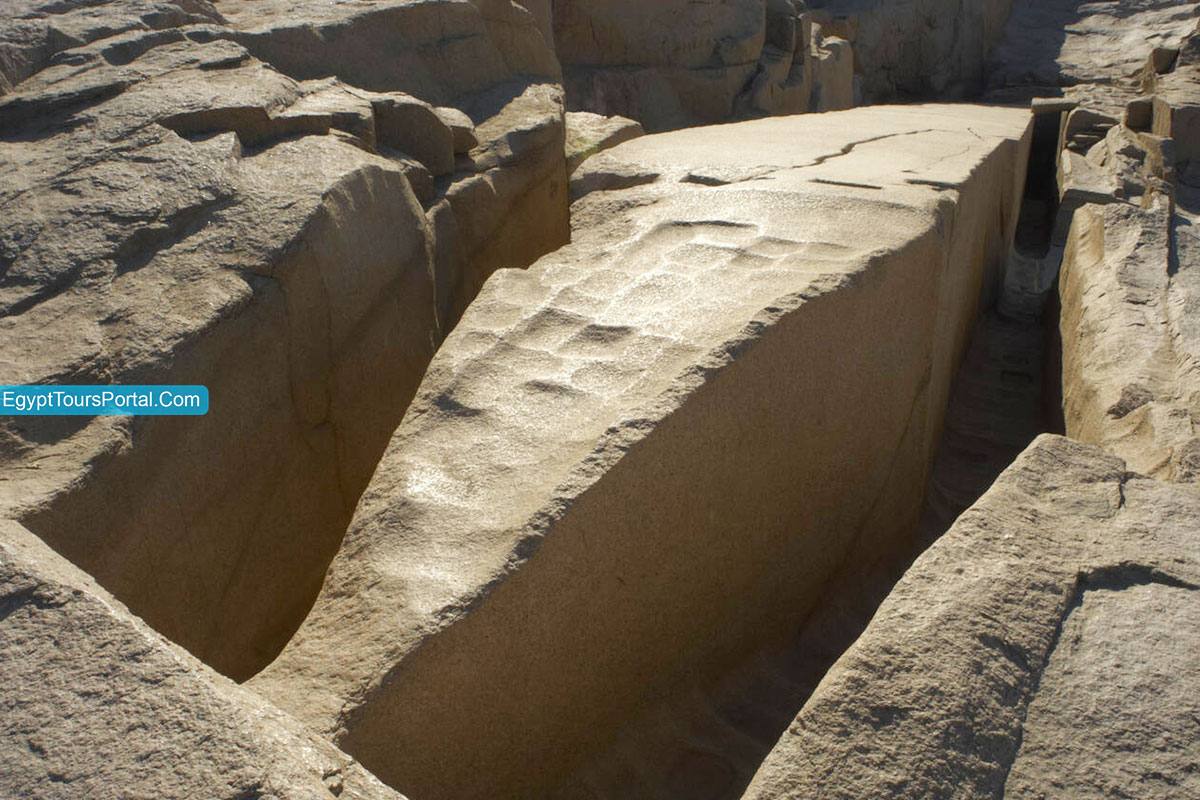
The largest obelisk ever built but was never raised is "The Unfinished Obelisk of Queen Hatshepsut" due to a crack found on it during the carving process. It would have measured 137 ft(42m) and weighed 1,200 tons. The tallest and largest standing obelisk is the Lateran Obelisk in Rome in the square on the west side of the Lateran Basilica, which reaches a height of 105.6 ft (32.2 m) and a weight of 455 metric tons.
The ancient Egyptians used materials such as copper and stone to create the obelisks plus came up with many advanced manners of quarry, transport which was documented through inscriptions, drawings on temple walls, and ancient manuscripts, but the secret to how the obelisk was raised, to its position on its base is still a mystery.

The oldest true Obelisk in the world is the 68-foot red granite Obelisk of Senusret I from the Twelfth Dynasty of the middle kingdom of ancient Egypt around 1971-1926 BCE, located in the golden city of Heliopolis, which symbolized the sun god Ra. Akhenaten's religious reform created the impression that the obelisk was the petrified rays of the Aton.
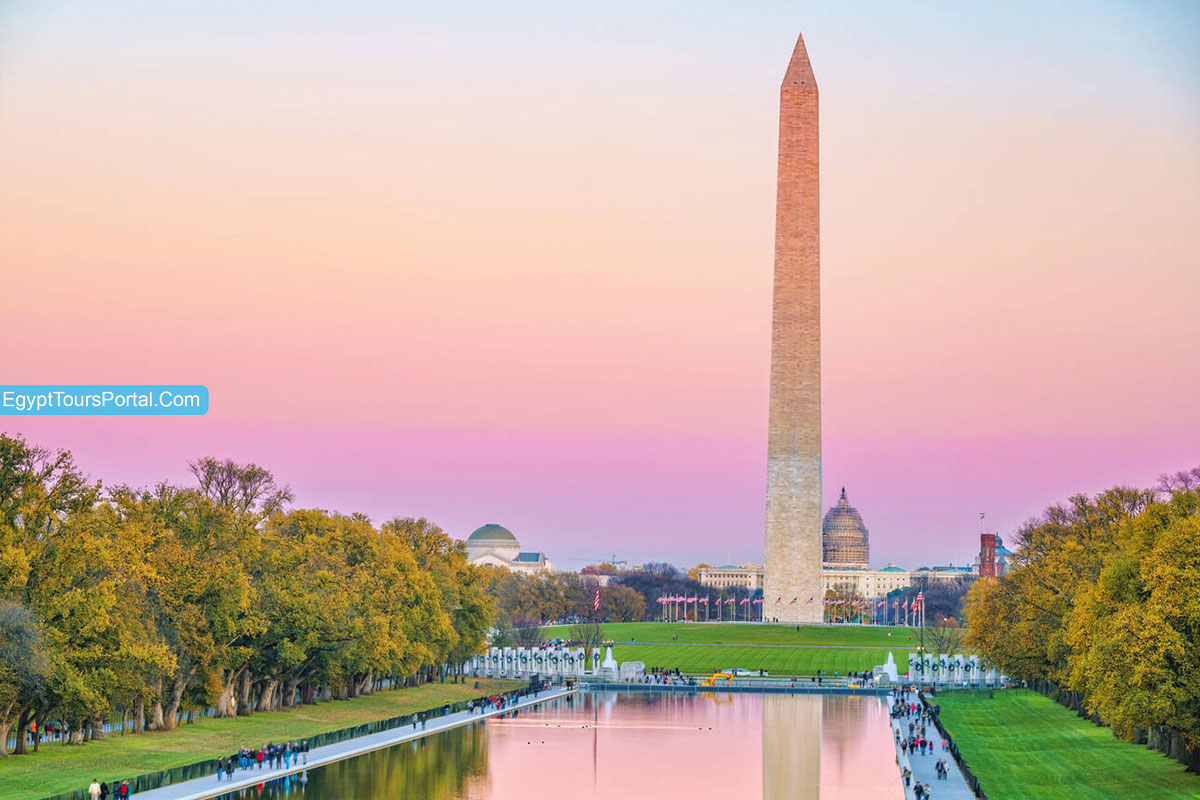
Explore the mysteries of ancient Egypt and discover the rich history and culture of one of the world's most fascinating civilizations. Visit the pyramids, obelisks, temples, and tombs, and uncover the secrets of the pharaohs.
Don't miss your chance to experience the wonder of ancient Egypt. Book now one of our majestic Egypt classic tours to unlock the secrets of the past and experience the grandeur of ancient history.
Private 4 Days Cairo Tour Packages for New Zealander Travelers 4 days Cairo Egypt To...
Tour Location: Cairo – Giza...
5 Days Cairo and Alexandria Tour Package For New Zealander Travelers 5 days Cairo an...
Tour Location: Cairo/Giza/Alexandria...
6 Days Cairo, Luxor & Aswan Tour Package For New Zealander Travelers 6 days Cair...
Tour Location: Cairo/Giza/Aswan/Luxor...
Amazing 7 Days Cairo and Hurghada Holiday for New Zealander Travelers 7 Days Cairo &...
Tour Location: Cairo – Giza – Hurgh...
The main purpose that made Pharaoh Thutmose III construct this obelisk was to honor a number of gods, which include the Sun God Ra and the Creator God Amun, plus to commemorate his many achievements and reign.
The tallest obelisk in the world is known as the Washington Monument, which is found in Washington, D.C., USA, standing at approximately 169 meters (555 feet) in height.
The work Obelisk was coined by the Greek historian Herodotus, which meant spit. The ancient Egyptians used to refer to these monuments as "Tekhnenu", meaning "To Pierce", symbolizing their aspiration to reach the sky.
The obelisks were made across the history of ancient Egypt, which dates all the way to the Old Kingdom period (2686–2181 BCE), which began as a religious practice to immortalize their heritage. The construction of obelisks continued as a common practice by many rulers in the New Kingdom and the Greco-Roman Period.
The most famous obelisk found in the world is St. Peter's Square in Vatican City, which contains the "Obelisk of Vatican".
A great number of obelisks were transported from the lands of Upper Egypt during the modern era where many diplomatic exchanges and theft during the time of conquest by European forces.
The entire country of Egypt deserve to be explored with its every heavenly detail but there are places that must be seen before any other such as the breathtaking Hurghada's red sea, The wonders of Cairo the pyramids of Giza, the great sphinx, the Egyptian Museum, Khan El Khalili Bazaar, the wonders of Luxor like Valley of the Kings, Karnak & Hatshepsut temple and the wonders of Aswan such as Abu Simbel temples, Philea temple, Unfinished obelisk and The Wonders of Alexandria like Qaitbat Citadel, Pompey's Pillar and Alexandria Library. Read more about the best places to visit in Egypt.
If you want to apply for a Visa On Arrival that lasts for 30 days then you should be one of the eligible countries, have a valid passport with at least 6 months remaining and pay 25$ USD in cash, as for the E-Visa for 30 day you should have a valid passport for at least 8 months, complete the online application, pay the e-visa fee then print the e-visa to later be presented to the airport border guard. You could also be one of the lucky ones who can obtain a free visa for 90 days. Read more about Egypt travel visa.
Egypt has a variety of delicious cuisines but we recommend “Ful & Ta’meya (Fava Beans and Falafel)”, Mulukhiya, “Koshary”, a traditional Egyptian pasta dish, and Kebab & Kofta, the Egyptian traditional meat dish.
The best time to travel to Egypt is during the winter from September to April as the climate becomes a little tropical accompanied by a magical atmosphere of warm weather with a winter breeze. You will be notified in the week of your trip if the Climate is unsafe and if any changes have been made.
You should pack everything you could ever need in a small bag so you could move easily between your destinations.
We have been creating the finest vacations for more than 20 years around the most majestic destinations in Egypt. Our staff consists of the best operators, guides and drivers who dedicate all of their time & effort to make you have the perfect vacation. All of our tours are customized by Travel, Financial & Time consultants to fit your every possible need during your vacation. It doesn't go without saying that your safety and comfort are our main priority and all of our resources will be directed to provide the finest atmosphere until you return home.
You will feel safe in Egypt as the current atmosphere of the country is quite peaceful after the government took powerful measures like restructuring the entire tourist police to include all the important and tourist attractions in Egypt. Read more about is it safe to travel to Egypt.
Wear whatever feels right and comfortable. It is advised to wear something light and comfortable footwear like a closed-toe shoe to sustain the terrain of Egypt. Put on sun block during your time in Egypt in the summer to protect yourself from the sun.
The best activity is by far boarding a Nile Cruise between Luxor and Aswan or Vise Versa. Witness the beauty of Egypt from a hot balloon or a plane and try all the delicious Egyptian cuisines and drinks plus shopping in old Cairo. Explore the allure and wonders of the red sea in the magical city resorts of Egypt like Hurghada and many more by diving and snorkeling in the marine life or Hurghada. Behold the mesmerizing western desert by a safari trip under the heavenly Egyptian skies.
There are a lot of public holidays in Egypt too many to count either religious or nation, the most important festivals are the holy month of Ramadan which ends with Eid Al Fitr, Christmas and new years eve. Read more about festivals & publich holidays in Egypt.
Egypt is considered to be one of the most liberal Islamic countries but it has become a little bit conservative in the last couple of decades so it is advised to avoid showing your chest, shoulders or legs below the knees.
Arabic is the official language and Most Egyptians, who live in the cities, speak or understand English or at least some English words or phrases. Fewer Egyptians can speak French, Italian, Spanish, and German. Professional tour guides, who work in the tourism sector, are equipped to handle visitors who cannot speak Arabic and they will speak enough English and other languages to fulfill the needs of all our clients.
The fastest way is a car, of course, a taxi. If you are in Cairo ride a white taxi to move faster or you could board the fastest way of transportation in Egypt metro if the roads are in rush hour.
The temperature in Egypt ranges from 37c to 14 c. Summer in Egypt is somehow hot but sometimes it becomes cold at night and winter is cool and mild. The average of low temperatures vary from 9.5 °C in the wintertime to 23 °C in the summertime and the average high temperatures vary from 17 °C in the wintertime to 32 °C in the summertime. The temperature is moderate all along the coasts.
It is the home of everything a traveler might be looking for from amazing historical sites dating to more than 4000 years to enchanting city resorts & beaches. You will live the vacation you deserve as Egypt has everything you could possibly imagine.









